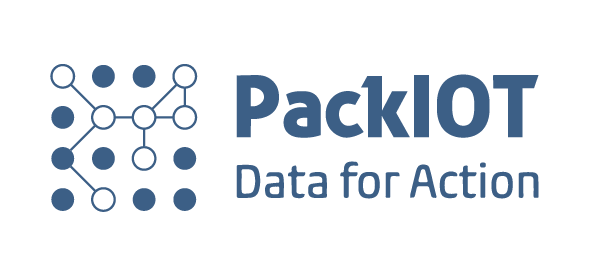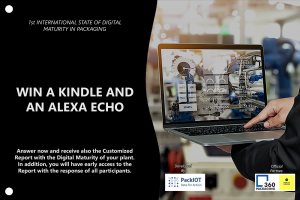Despite automation, the rise of new technologies and the growth of industry 4.0, factories employees still play and will continue to play a key role in the industry’s success.
According to a Gallup study, employees in production jobs are now the least engaged compared to other sectors. This clearly shows us that the industry as a whole is still struggling to actually increase employee engagement. While industry 4.0 technologies – such as artificial intelligence, machine learning, analytics, and mobile solutions – are being implemented in manufacturing plants around the world to transform manufacturing processes, little has been done to transform the employee experience.
For years and years, managers for all kinds of industries have been trying to implement new processes and tools based on their own decisions and ways. And I can assure you this is one of the most common problems when companies are trying to get into new approaches and technologies. Usually, those who make a decision are those who are not going to effectively will use the new tech/process.
To really achieve great results in digital transformation, the industry sector must bring the operators to the center of this discussion. And by saying this, I am not only warning managers and directors, but also the technology companies who provide solutions to those factories.
It’s not about tech, it’s about management
Having confidence (mutual respect) in the leadership team plays a large role in engaging employees. In fact, almost two-thirds (61%) of employees report having trust in senior management as key to their satisfaction (check more here).
Decide something and just push it on a top-down manner is not the right approach anymore. So, one of the silliest mistakes managers does there’s nothing to do with technology or digital transformation.
In his famous book “Great by Choice”, Jim Collins clearly demonstrates his opinion on the matter. He has studied hundreds of winning companies and separated an excerpt from the book to mention the mistakes and successes in adopting new technologies.
“If your company is going to implement new technology, it must be carefully selected and have a well-defined purpose. New technologies without a purpose are a waste of time, effort and money…So instead of rushing, they carefully considered a plan of action. Technology is a tool used by large companies to get organizations to achieve their goals.”
The key here is communication. If all employees are aware of the company’s objectives and how they will get to the ground, trying to turn each phase of the task into a challenge that everyone is part of can be a good strategy to involve the team and make it feel the relevance of its contribution to achieving an objective that belongs to the whole group and, as such, will be recognized by the whole group.
Fulfilling tasks is less attractive from the start than overcoming challenges. It is worth defining clear challenges, setting targets and metrics to measure their progress and setting short-term objectives. Achieving results relatively quickly will maintain the teams’ interest in the mission.
Tech companies (also) don’t prioritize the operators
Sorry startups, tech enterprises and solutions providers, you are part of the issue. We, in startups, spend too much time concerned with the “buyer/decision-maker” and this could be a really bad approach in the long term. This could lead the company to achieve the sales quota 1 trimester, but will not still if the operator is not in the center of all your strategy.
Many technological solutions make the mistake mentioned above: they try to implement the transformation process from top to bottom. Most 4.0 industry solutions are made for directors and managers and not for the operators at the top.
This is a mistake that strongly contributes to the low engagement of operators and to the failure of the digital transformation in the industry.
How to bring the operators to the center of the digital transformation?
You must be aware of something really important: your operation team already is tech-driven and sometimes the guys are early adopters. Yes! They use digital gadgets and tech tools on a daily basis. (1.5 billion users in 180 countries makes WhatsApp the most-popular messaging app in the world. Maybe a bunch of guys of your team are heavy users of it, just to give a simple example)
But, how can we bring our operational team to the center of this important matter?
A list of five steps can help a manager to implement more participatory management in a controlled and effective way, gradually discovering the most delicate points. This would be an excellent way to start his digital transformation work. Involve employees, ask them which sectors, processes, areas or lines most need technological support. I guarantee you won’t regret it.
To understand how your employees think and bring them to your side when making this change, you can:
Carry out a survey. Discover how your employees perceive the current management and the company. This can be done in a formal way, or, if your company is small, a chat in the factory restaurante could be even more efficient.
Be transparent. Be honest and open with your employees, show numbers, explain each department’s role to the other and make it clear what the job of each one is in the final result.
Actively provoke ideas. New habits take time to “catch”. Encourage them with brainstorming rounds, corporate games, and quick, frequent meetings.
Establish human bonds. Participatory management is made of people. Your managers should know each employee well, with regular personal feedback and legitimate investment in personal development.
Keep up with the changes. At each step, check on team morale, productivity and the evolution of the new management. If you feel any adjustment is necessary, do it, preferably with the participation of the employees.
Extra tip: Let them try the tool! Really, it seems simple, but a lot of industries make this mistake. They buy new technological software, which depends on the operators’ usage, but doesn’t allow the guys to participate in the “trial period”. Well, do it, please! It will worth it later.
Written by: Fernando Pacheco, COO of PackIOT.




